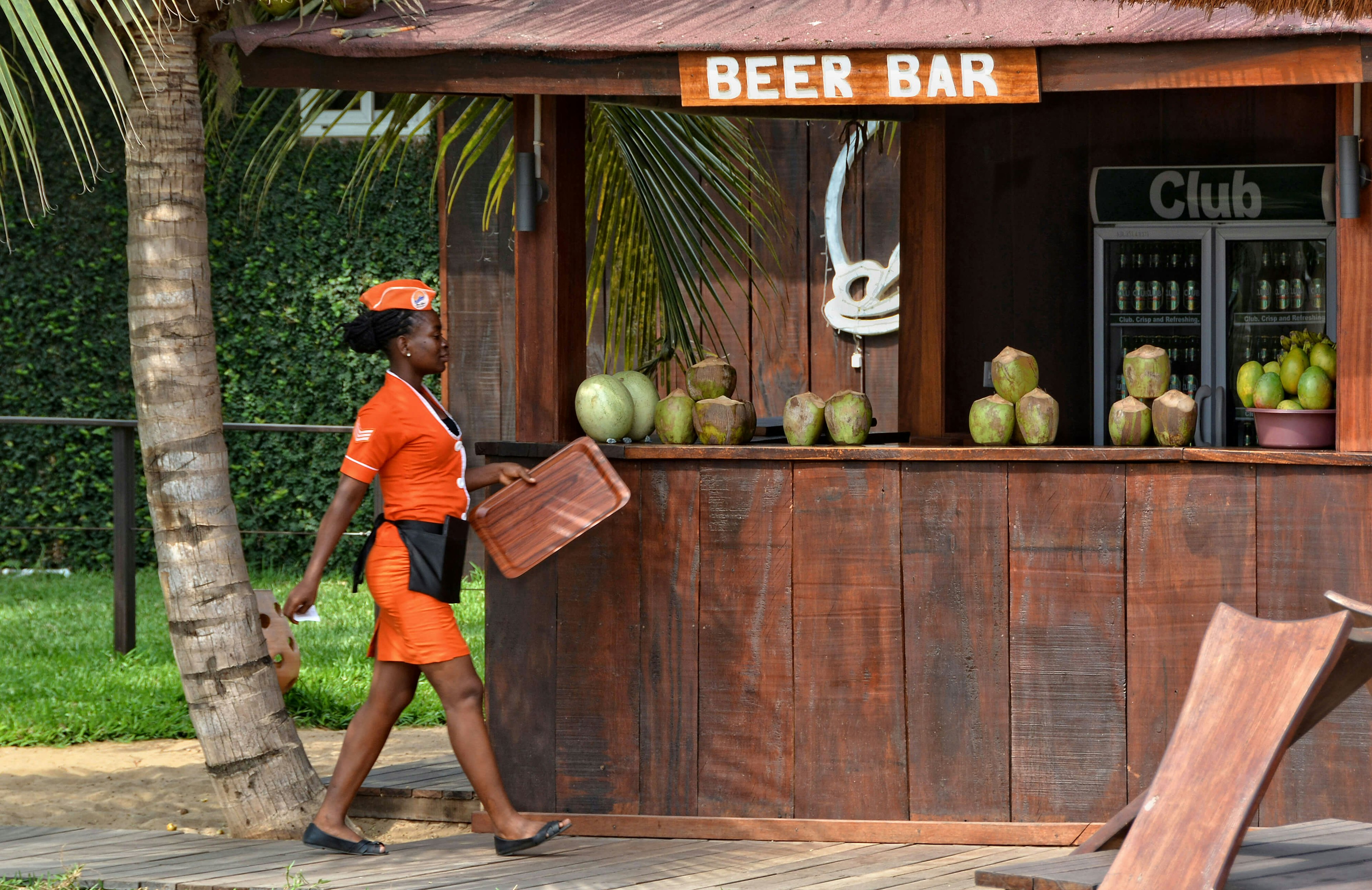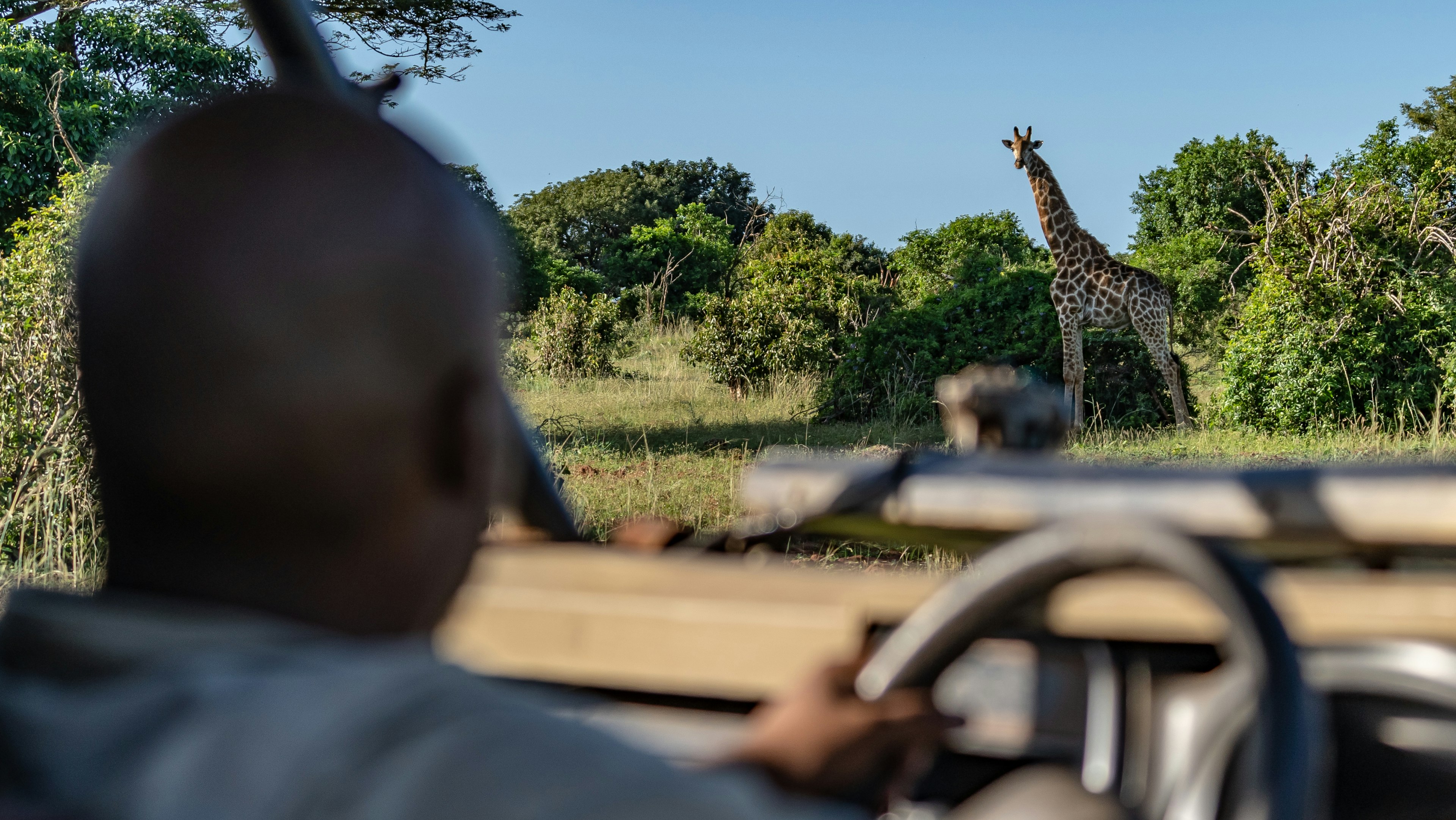

Tipping is big in Africa ΓÇô here's what you need to know, whether you're going to a restaurant or spotting elephants with a guide. Ger Metselaar / Shutterstock
So, youΓÇÖre wrapping up your African safari trip and thereΓÇÖs one thing left to do: tip. But whatΓÇÖs the appropriate amount?
While youΓÇÖre not obligated to tip, tipping is customary in most African countries. Amounts vary depending on where you are and what service you're tipping for, from safari guides to hotel staff. Most tips should be in local currency, though USD, EUR and GBP are also okay. Due to always-changing conversion rates, the below dollar amounts are in USD, unless otherwise specified.
Restaurants and bars
Popular restaurants and bars in holiday hotspots like Egypt, Morocco and South Africa will add a 10% service charge to the bill. If there isnΓÇÖt one, itΓÇÖs common to leave a tip of around 10 to 15% if you were happy with your meal.
Throughout the rest of Africa, for the most part, leaving 10 to 15% is a normal tip for good service in restaurants, as is rounding up the bill in bars. Waitstaff and bar staff across much of Africa often earn a very basic living wage, therefore tips are a hugely welcome supplement.

Hotel staff
In certain northern African destinations like Egypt and Morocco, hotel concierges are powerful forces. Tip them ($0.50 in Egypt and $1.50 in Morocco) at the start of your stay to ensure good service for the duration. Housekeeping staff should be tipped in local currency (the equivalent of $0.50 in Egypt and $1 in Morocco), and porters should be tipped $0.20 in Egypt and $0.10 in Morocco per bag.
Throughout AfricaΓÇÖs popular tourist destinations, including South Africa, Kenya and Tanzania, hotels will expect small tips in local currency (1 ZAR in South Africa and 1 KSh in Kenya) to the porter for each bag, and to housekeeping staff each day. Concierges can be useful for pulling strings in these countries, so feel free to tip them in local currency ($1 in South Africa and $0.10 in Kenya) for any favors they do for you. Luxury safari camps will often provide a general tipping box at the front desk, and anything placed into this box should be spread evenly among the campΓÇÖs staff. If you wish to tip a certain member of staff specifically, make sure you hand it to them in person.

Tour guides
When taking tours in North African countries, 10% in Morocco and $5 in Egypt is a good amount to tip guides and driver guides, while drivers can be tipped a bit less. In Morocco particularly, tipping of this nature is best done discreetly.
In other African countries where you might embark on an excursion, tipping about 10% of the overall cost to tour guides and drivers is appreciated. On safari drives, the general idea is to tip your guide the local currency equivalent of $10 per person per day, and your tracker $5-10 per person per day, but give these as cumulative tips at the end of the safari.
Taxi drivers
Throughout most of the African continent, the norm when it comes to tipping taxi drivers is to round up the final fare, or tell the driver to keep the change. In countries more accustomed to mass tourism, like South Africa, drivers will usually expect a 10% tip at the end of a journey. In Egypt, top up the fare by 5%.
How much should you leave when visiting a mosque or a temple?
There isnΓÇÖt really a hard-and-fast rule here, but try leaving the local currency equivalent of $1 to the person handing out robes and scarves to women, and 50 cents to the person who minds the shoes if there is one.
Explore related stories


 Destination PracticalitiesTraveling to Tanzania? These 15 top tips will make your trip even better
Destination PracticalitiesTraveling to Tanzania? These 15 top tips will make your trip even betterDec 18, 2024 ΓÇó 6 min read

 Tips & AdviceHow to maximize your PTO and take the trip of a lifetime in 2025
Tips & AdviceHow to maximize your PTO and take the trip of a lifetime in 2025Dec 13, 2024 ΓÇó 9 min read

 Destination PracticalitiesHow to get your cell phone connected in Egypt: eSIMs, wi-fi and mobile networks
Destination PracticalitiesHow to get your cell phone connected in Egypt: eSIMs, wi-fi and mobile networksDec 11, 2024 ΓÇó 7 min read



